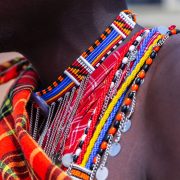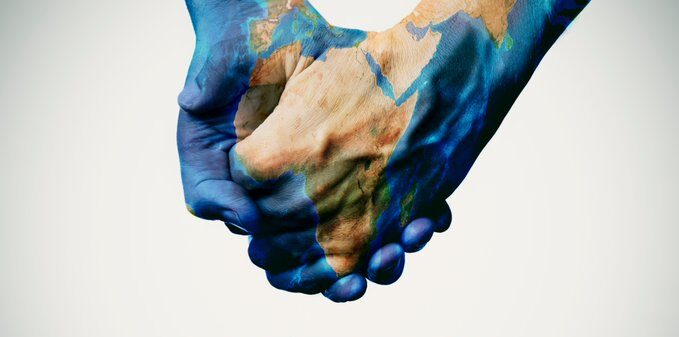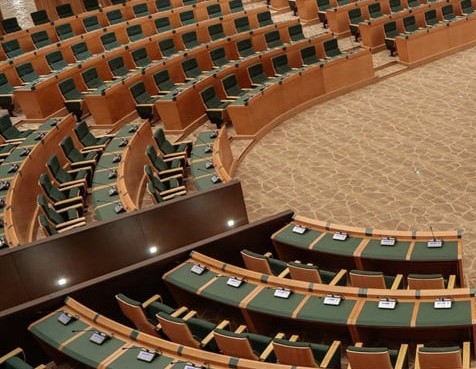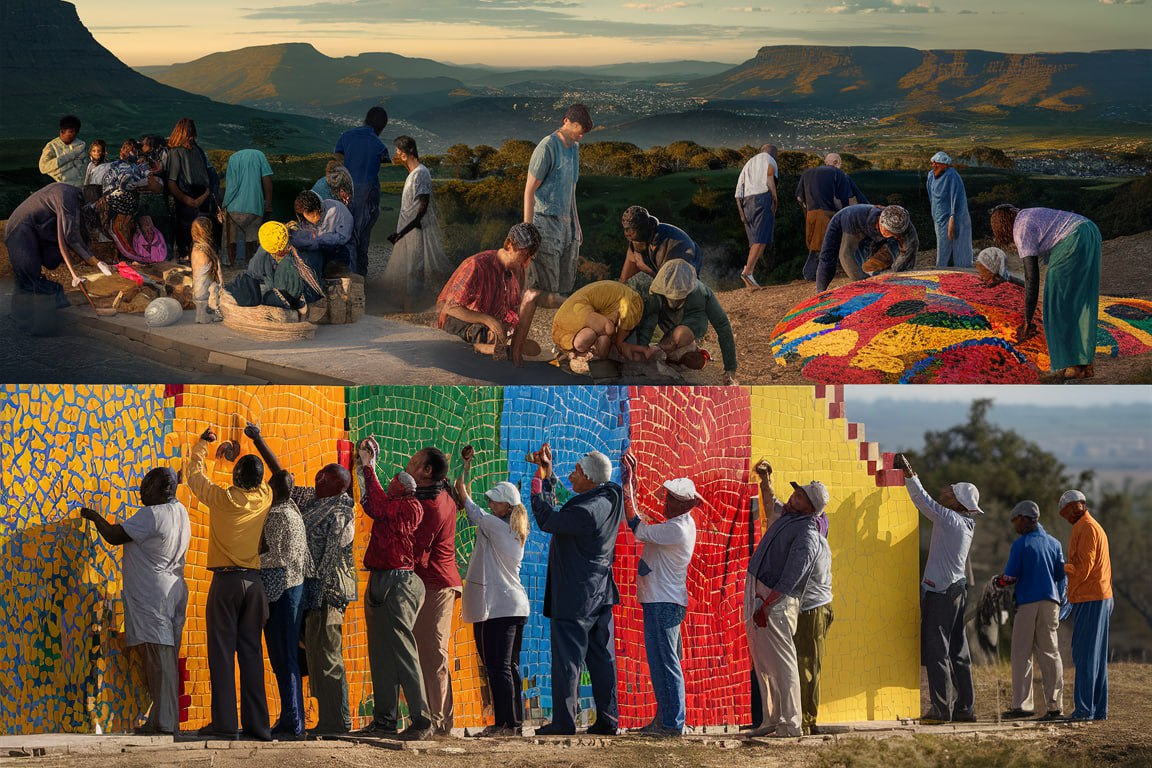
Dr. Bhengu is an Independent Researcher on Afrikan philosophy, Afrikology…
Read Next
By Prof. Herbert Vilakazi, courtesy of Dr Mfuniselwa Bhengu, Kwazulu Natal, South Africa
Many years after 1994, it remains a truism, in observations about South Africa, that economic leadership of the country is still in the hands of the white population, which is less than a fifth of the total population of the country. Just about everyone is in agreement with the view that this situation poses a danger to the stability and future of democracy in the country.
Likewise, the intellectual leadership of the country is also being exercised by a small minority, Whites. It must be stressed that such a situation is also undesirable, from the point of view of the social, cultural, and spiritual health of the society; it is also likely to give rise to distortions and errors in public policies, which may, in time, seriously endanger the political stability of the country.
A great danger hovering over the current efforts to transform South Africa into a democratic and developing society is the paucity of the inputs of African thinkers and intellectuals in the public life of society, and in playing the role of `Think-Tank’ of contemporary South Africa.
There is growing discontent, nationally, among African intellectuals, over what they perceive to be the marginalization of the African voice, and African opinion, in the guidance of the nation as a developing society, and as part and parcel of African civilization.
We do not, of course, believe in the racial origin of ideas, but subscribe to the proposition that ideas are by-products of the experiences of individuals and masses of people in society and history. It has been stated that “minds are connected by invisible threads with the general body of society.” Therefore, even though it is the single individual who thinks, that individual thinks out of a group or community experience. Karl Mannheim, who carved out within sociology what is called the “sociology of knowledge”, went as far as to state: “Only in a quite limited sense does the single individual create out of himself the mode of speech and thought we attribute to him. He speaks the language of his group; he thinks in a manner in which his group thinks. He finds at his disposal only certain words and their meanings…Thus it is not men in general who think, or even isolated individuals who do the thinking, but men in certain groups who have developed a particular style of thought in an endless series of responses to certain typical situations characterising their common situation.” (Karl Mannheim, Ideology and Utopia)
The peculiarity of South African history, so far, which was shaped by white supremacy, has been the differentiation of the life experiences of society members, on the basis of race. The consequence is that there exists, in contemporary South Africa, the African experience, the Indian experience, the White experience, and the Coloured experience, with corresponding cultures and ideas.
It is also important to stress that every community, every social class, and every society gives birth to its own intellectuals and artists, who are, as it were, `organic outgrowths’ of that particular experience. These are individuals who become the `mouthpieces’ of the people concerned, who articulate, express, and interpret the feelings, aspirations, opinions, and dreams, of the particular people, to the people themselves, to the rest of society, and to the world-at-large.
One of the major distorting effects in the history of culture arises from what has been called `substitutionism’, when the historical tasks of a particular class, or community, are fulfilled by another social class or by another community, on behalf of the group that should have fulfilled the task. A prime example would be the intellectual leadership of a particular community, (say, the African community, in South Africa) by individuals coming from, and shaped by, another community experience (say, White). The same distorting effect has resulted from the intellectual leadership of peasants by people from another social class, or from the intellectual leadership of the working-class by individuals from professional or business classes. (Lenin, Isaac Deautcher, Mao).
Are we saying that there are no ideas of universal validity? No, we agree that there are ideas of universal validity. But the problem does not end with the recognition of that fact. The assimilation of foreign ideas, by a particular culture, must be preceded by the naturalization of those ideas by intellectuals of that particular group or community, through the medium of the culture and traditions of that particular class, community, or society. Ideas from outside must be filtered into the consciousness of that community, class, or society, and the filter is the culture and the historical tradition of the particular people receiving those ideas.
In that sense, we can speak of the naturalization of a Western product, Marxism, into Russian society, which was accomplished by Plekhanov, Lenin, and, later, by the Stalinists; so, also, can we speak of the naturalization of Marxism into China, accomplished by Mao Tse Tung. That is also why Christianity took the colour and shape it did, as it became the Greek Orthodox Church, the Russian Orthodox Church, the Africanist Churches of the colonized Africans in South Africa, and the Africanist Churches of the former slaves from Africa in the United States of America. Christianity, too, originally was not a product of the Western experience. It arose and developed, initially, in the Middle East and Africa, and was subsequently brought to the West, and later had to be filtered (naturalized) through the cultures of Western regions -hence Medieval Christianity, quite radically different from original Christianity.
One of the biggest sources of error in the cultural development of Africa, and in the cultural development of the West, is the failure of African intellectuals, so far, to naturalize the Western intellectual experience, and Western concepts, into Africa, i. e., to use African culture and historical tradition as a filter for receiving Western concepts and ideas into African reality.
We must understand the peculiar African problem, here. When a European gets educated, he/she remains culturally a European; when a Chinese in China gets educated, he/she remains culturally a Chinese; when a Hindu gets educated, he/she remains culturally a Hindu; when a Muslim gets educated, he/she remains culturally a Muslim; but due to the peculiar dynamics of European conquest and domination of Africa, when an African got educated, he/she became culturally Europeanized.
Educated Africans were educated as part of Western civilization, but unlike their Western counterparts, they were placed in a suffocating status of not being able to engage themselves in developing a civilization of which they felt a part. Educated Africans in Europe cannot develop European civilization; just as African-Americans in American society cannot develop American civilization. Because of how they were produced by European civilization within Africa, African educated people have not been able to develop African civilization. [When we speak of China, India, Europe, or the USA, as a civilization, what do we have in mind? We have in mind a complex of culture, language or languages, religion, a world-view, a pattern of historical experience, a certain technology and manner of using that technology, an identifiable pattern in architecture, art, music, poetry, literature and dance, a certain body of knowledge, science, medicine, and values, a certain cuisine and manner of dress and general habits, etc.
A civilization is generally so massive and of such power that it acts like a magnet, drawing outsiders to it, influencing others and being influenced by others; in addition, the massiveness and power of a civilization inevitably tend to push its influence beyond its territorial borders, either peacefully or forcefully. A civilization is all these things and more, as long as they all form a set, like a set of pots.]
The tragedy of African civilization is that Western-educated Africans became lost and irrelevant as intellectuals who could develop African civilization further. Historically, intellectuals of any civilization are the voice of that civilization to the rest of the world; they are the instruments for the development of the higher culture of that civilization. The tragedy of Africa, after conquest by the West, is that her intellectuals, by and large, absconded and abdicated their role as developers, interpreters, minstrels and trumpeters of African civilization. The educated African mindset has remained fixated on principles and patterns of Western civilization. The educated African, so shaped and so produced, has not been an able instrument and channel for the naturalization of European/Western culture into African society.
This failure has resulted in the bizarre implantation of Western political institutions, Western political theory, Western music, Western philosophy, Western art relating to films, literature, Television programs, Western economic institutions, and Western economic theory, on to African reality. Naturally, this has not taken Africa forward, in terms of development, but has brought about the political, economic, and human crisis and tragedy registered all over Africa.
Compare with China. There was a time when there was implantation of Western institutions and processes, when China was still a semi-colony of the West. Then, after 1949, China can be said to have fallen, intellectually, under the hegemony of the Soviet Union. There was a tendency to imitate the Soviet pattern of development -Stalinism. Then there was a break with the Soviet Union, while Mao was still alive, and the beginning of a search for the `Chinese way’ to development. Then, a few years after Mao’s death, the onset of the current stage of “Reforms”, consisting of the drastic alteration of the “socialist model”, and the use of “capitalist market” methods in the strategy for development. What is important is that Western observers and scholars of development testify that current China is following a “socialist model” unlike the old Soviet or Maoist one, and a “capitalist model” unlike the capitalism found in the USA or Britain. What emerges very clearly is an imprint of original Chinese thinking in tackling her problems.
Likewise, we want to see an imprint of original African thinking in tackling Africa’s problems. We are not there, yet.
Due to the nature of the colonial encounter, and racism, the West and Africa never opened their arms and souls to one another, embracing heartily, like two individuals, one feeling the warmth of the other. It was a Master-Servant relationship, with the West being the Master, and Africa the servant. The cultural influence of the Master over the Servant was largely direct, in many ways through coercion; that of the Servant over the master was mostly indirect, in many ways through illicit contacts. The West, through her intellectuals, failed to filter into its culture and being the African experience and African culture. The West could have benefited tremendously from the encounter with African culture, especially in its spiritual development. In sum, both Africa and the West are the poorer for this failure. (In South Africa, how many Whites, Indians, and Coloureds, know African languages? As we know, language is the gateway into “other cultures”. The onus was largely on the African, to learn English and Afrikaans, in order to communicate with Whites, Indians, and Coloureds.)
One of the major sources of the problems we have in the country is the fact that the concepts and ideas largely used for the understanding of the liberation struggle, and for guiding the process of liberation, have come to the activists directly from non-African intellectuals, without the prior process of being filtered through the medium of African culture, African traditions and values, by Africans themselves. For example, Marxist concepts and ideas (the experience of the Soviet Union) have largely influenced the thinking and tactics of African activists, particularly young activists of the ANC.
These concepts and ideas have come to these activists directly from White intellectuals, many of whom derived these ideas from their studies in Britain. In other words, so far, there has been no naturalization of these ideas onto African soil, accomplished by Africans themselves, through the medium of African culture, languages, traditions, and values. These foreign ideas and experiences have largely been swallowed whole, without proper adaptation to the African cultural milieu -and the consequence has been some serious mental indigestion, which has had some tragic political implications. [e. g., Africa-wide failure to deal creatively with African Traditional political institutions]
The largest experience in South Africa is the African experience, i. e., the experience of the African people, who form the overwhelming majority of the population of the society. Therefore, it is right and proper that this African experience should be the source of ideas and concepts which are dominant in policy discussions and in public policy formation, and in the creation of the new South African society – ideas and concepts articulated, expressed, and interpreted by individual thinkers who are products of the African experience, i. e., by Africans themselves. Foreign ideas, no matter how respectable and convincing, should still pass through the filter of African culture and traditions and values, on their way to the minds of society members.
We do not want to create the old pre-industrial Africa. We want to create a new Africa, using as building blocks and bricks largely the traditions and culture bestowed upon the present Africa by African civilization. There is a particular challenge here. A hiatus emerged between Western-educated society, on one hand, and principles and patterns of African civilization, on the other hand. Knowledge of the principles and patterns of African civilization became lost in the consciousness and mental set of African intellectuals -not to even speak of non-African intellectuals.
The peculiar situation, here, is that knowledge of the principles and patterns of African civilization remained with ordinary, uncertificated men and women in urban and rural areas, especially in rural areas.
In the entire history of civilizations, no intellectuals of a particular civilization have ever been placed in such a tragic situation in relation to the civilization of their own people, such as that occupied by African intellectuals in relation to the culture and civilization of their own people. Our intellectuals, by and large, have no spiritual/intellectual sympathetic relationship with the culture and civilization embracing the masses of African people. This is the case in the entirety of Africa.
Our intellectuals, who must initiate the formulation of a new and proper education policy for Africa, must engage in a most massive and serious process of re-education of themselves on the principles and patterns of African civilization, whose knowledge they have largely lost. The biggest spiritual and mental challenge to African intellectuals is that in this massive re-education of themselves on the principles and patterns of African civilization, the only teachers they have are ordinary African men and women who are uncertificated, and largely in rural areas.
We are talking here about a massive cultural revolution consisting, first, of our intellectuals going back to ordinary African men and women, to receive education on African culture and civilization; second, it shall break new ground in that non-certificated men and women shall be incorporated as full participants in the construction of the high culture of Africa; this shall be the first instance in history, in which certificated intellectuals alone shall not be the sole builders and determinants of high culture, but shall be working side by side with ordinary African men and women in rural and urban life.
For Whites, Indians, and Coloureds, the first challenge is to learn African languages. This can only be done genuinely from the inside of African communities. Language is the most crucial entrance gate into any culture and civilization. This country needs to undergo a Cultural Revolution, of which everyone in the country should be a part. I am talking, first and foremost, of Whites, Indians, Coloureds, and educated Africans making a conscious, massive, heroic effort to imbue themselves with the spirit and knowledge of African culture, African traditions, and African civilization. This is the major, first, part of the enormous Cultural Revolution necessary in this country.
Intellectuals must become anthropologists doing field-work, like Frobenius. But, unlike academic, Western anthropologists, African intellectuals shall be doing field-work on their own people, on themselves, as part of a truly great effort aimed at reconstructing Africa and preparing all of humanity for conquering the world for humanism.
The principle to be adopted is this: the unique African pattern of development into modernity should base itself, first and foremost, on the utilization of the resources provided by her civilization.
This enormous creative work of research and development of the principles and patterns of African civilization have already been proposed by the Nigerian scholar, Chinweizu, to achieve what he calls “reclamation” of African languages which have been suffering from neglect and atrophy from colonialism up to now.
This does not mean that Africa becomes closed to outside influences. No civilization has ever developed and prospered in isolation. In isolation, civilization atrophies. But the influence from the outside, at issue, is not that which occurred with reference to Africa under the rule of the West, i. e., the taking over of Africa by Western civilization. The influence of other civilizations and cultures on another civilization is similar to the relation of rivers to the huge ocean.
Civilization is the huge ocean; elements or influences of other civilizations and cultures upon a particular civilization are like rivers which lead to, and empty themselves into, the huge ocean. These are assimilated by the civilization, and bring about changes, from within, and become yeast for the further development of aspects of the civilization. So, the fine and finest products of the cultural and spiritual wealth of other civilizations shall be absorbed by the child and student within the African school, but all this shall take place within the context of African civilization.
These are the principles which should guide the selection of the building blocks we must use in the construction of the new Africa, whether we are concerning ourselves with agriculture, health, diet system, government, politics, architecture, youth development, gender relations, education, music and the arts in general, etc.
Subscribe now for updates from Msingi Afrika Magazine!
Receive notifications about new issues, products and offers.
What's Your Reaction?
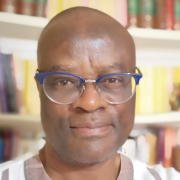 PIN IT
PIN ITDr. Bhengu is an Independent Researcher on Afrikan philosophy, Afrikology and Egyptology. He is an established and experienced author, self-publisher and managing director of Phindela Publishing Group & Editor-in-Chief of INQABA Journal, a quarterly publication that specializes on Afrikology. He describes himself as an Afrikan of Nguni (Zulu) extraction, but then a global citizen. Black, but being in total fusion with the world, in sympathetic affinity with the Earth... “I am black not because of a curse, but because my skin has been able to capture all cosmic eluvia. I am truly a drop of the sun under the earth.” He says.









